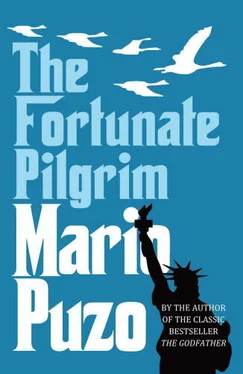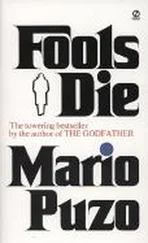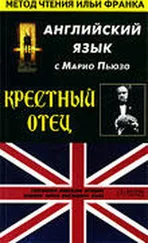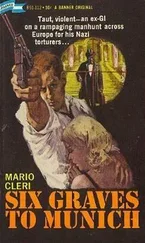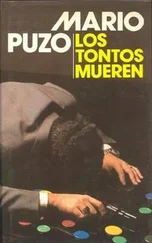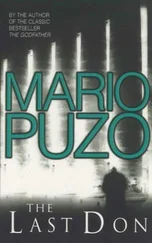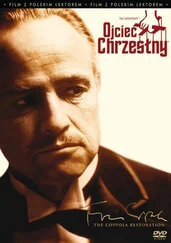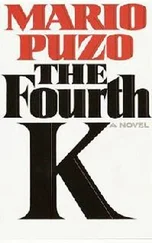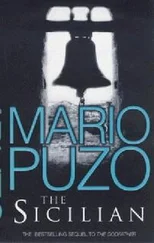Mario Puzo
THE FORTUNATE PILGRIM
At the bottom of the heart of every human being from earliest infancy until the tomb there is something that goes on indomitably expecting—in the teeth of all crimes committed, suffered, and witnessed—that good and not evil will be done to him. It is this above all that is sacred in every human being.
—SIMONE WEIL
I CONSIDER MY second book, The Fortunate Pilgrim, my best novel and my most personal one. It proved also to be my most interesting book because it was full of surprises.
When I began, the plan was to make myself the hero. It was supposed to be the story of a struggling writer, poorest of the poor, whose mother, sister, and brothers were enemies of his art, and how, in the end, he succeeded in spite of them. It was written to show my rejection of my Italian heritage and my callow disdain of those illiterate peasants from which I sprang.
But what a surprise it was when I discovered that my mother turned out to be the hero of the book. And that my sister was more honest, trustworthy, and braver than me. Through the writing, those immigrant Italians who worked twelve hours a day in gray, sweat-soaked fedoras, wearing great handlebar mustaches, had the dignity of heroes. How it happened, I never knew.
All young writers dream of immortality—that hundreds of years in the future the new generations will read their books and find their lives changed, as my life was after reading The Brothers Karamazov at the age of fifteen. I vowed I would never write a word that was not absolutely true to myself. And I felt I had achieved that in The Fortunate Pilgrim. I assumed that such a writer would automatically become rich and famous.
I received marvelous reviews. But then came the next surprise: Nothing happened. I didn’t become rich and famous. In fact, I was poorer than before; I had to work two jobs instead of one.
I was furious, but only at myself. I rethought my whole life. Why should the public care that I put so much of myself into that book, so much care into each sentence? Why should my family care about my writing when it didn’t earn my daily bread? Why should they indulge my eccentricity? And the public, why should they care about tragedies that didn’t reflect their own experience? I concluded that I had worked ten years of my life in sheer self-indulgence. I thought myself that most despised figure in Italian culture, a “chooch”—that is, a man who could not earn a living for himself or his family.
But then came another surprise. In reaction to my disappointment, and to feed my family, I decided to write a bestseller. And to use some stories that my mother—who is Pilgrim ’s heroine, Lucia Santa—told us as we were growing up. That book was The Godfather. It took me four years to write, still working two jobs. But it accomplished my aim. It was a bestseller, and this time I became rich and famous. I had done the right thing.
But there were more surprises to come. Whenever the Godfather opened his mouth, in my own mind I heard the voice of my mother. I heard her wisdom, her ruthlessness, and her unconquerable love for her family and for life itself, qualities not valued in women at the time. The Don’s courage and loyalty came from her; his humanity came from her. Through my characters, I heard the voices of my sisters and brothers, with their tolerance of human frailty. And so, I know now, without Lucia Santa, I could not have written The Godfather.
It is thirty years since I wrote The Fortunate Pilgrim. The changes in the culture, and the change in women’s roles, as well as the growing interest in ethnic subjects, have made this book in many ways contemporary. The human experience, I hope, is timeless.
I am immensely flattered that Random House is republishing it after all this time. That it still holds its power, maybe more now than then.
I’ve reread the book and I still love it, and most of all I love my mother and hold her in true reverence. She lived a life of tragedy and still embraced life. She is, I can see from this vantage point, in every one of the books I have written. And I know now I am not the hero of my life, she is. All these years later, her tragedies still make me weep. And the book cries out, “Behold how she was wronged.”
—Mario Puzo November 1996
PART ONE

CHAPTER 1

LARRY ANGELUZZI SPURRED his jet-black horse proudly through a canyon formed by two great walls of tenements, and at the foot of each wall, marooned on their separate blue-slate sidewalks, little children stopped their games to watch him with silent admiration. He swung his red lantern in a great arc; sparks flew from the iron hoofs of his horse as they rang on railroad tracks, set flush in the stones of Tenth Avenue, and slowly following horse, rider and lantern came the long freight train, inching its way north from St. John’s Park terminal on Hudson Street.
In 1928 the New York Central Railroad used the streets of the city to shuttle trains north and south, sending scouts on horseback to warn traffic. In a few more years this would end, an overhead pass built. But Larry Angeluzzi, not knowing he was the last of the “dummy boys,” that he would soon be a tiny scrap of urban history, rode as straight and arrogantly as any western cowboy. His spurs were white, heavy sneakers, his sombrero a peaked cap studded with union buttons. His blue dungarees were fastened at the ankle with shiny, plated bicycle clips.
He cantered through the hot summer night, his desert a city of stone. Women gossiped on wooden boxes, men puffed cigars of the De Nobili while standing on street corners, children risked their lives in dangerous play, leaving their blue-slate islands to climb on the moving freight train. All moved in the smoky yellow light of lamp posts and the naked white-hot bulbs of candy-store windows. At every intersection a fresh breeze from Twelfth Avenue, concrete bank of the Hudson River, refreshed horse and rider, cooled the hot black engine that gave warning hoots behind them.
At 27th Street the wall on Larry Angeluzzi’s right fell away for a whole block. In the cleared space was Chelsea Park placed with dark squatting shapes, kids sitting on the ground to watch the free outdoor movies shown by Hudson Guild Settlement House. On the distant giant white screen, Larry Angeluzzi saw a monstrous horse and rider, bathed in false sunlight, thundering down upon him, felt his own horse rise in alarm as its tossing head caught sight of those great ghosts; and then they were past the intersection of 28th Street, and the wall had sprung up again.
Larry was nearly home. There was the pedestrian bridge that spanned Tenth Avenue on 30th Street; when he passed beneath that bridge he would be home, his work done. He set his cap at a jauntier angle, rode straight in the saddle. All the people sitting on the sidewalk from 30th to 31st Streets were relatives and friends. Larry made his horse gallop.
He passed swiftly beneath the bridge, waved to the children leaning on its rails above his head. He made his horse rear up for the people on the sidewalk on his right, then turned the animal left into the open railroad yards that formed a great spark-filled plain of steel down to the Hudson River.
Читать дальше
